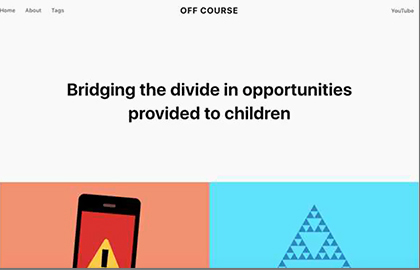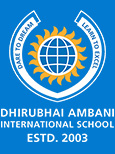OFF Course

During our interactions with students in our CAS service projects last year, we realized that the educational
opportunities availed by children from NGOS are sometimes limited to purely textbook-oriented content,
rather than touching upon valuable real-world skills. Thus, we decided to start Off Course: A CAS project
aimed at bridging the divide in opportunities provided to children. By creating short-courses designed for
children about various skills, we took a step towards resolving this divide and provided learning outside their curriculum. We began by brainstorming an
area to which we could make a meaningful contribution, and chose the skill-building of children with limited access to content. We then assigned roles to
each of us, ranging from content creation to logistics to fact-checking. By identifying each of our diverse interests and talents - including both academics and
non-academics- we hoped to create strong and accurate content that sparks interests in younger children. We settled on the following courses:
Cyber Safety: Most users of the internet do not know a vast majority of the perils or threats that come along with it. Our Cybersafety videos aimed to
make children aware a safe and responsible use of the internet.
Fractals: Maths is a world of never-ending patterns, and fractals are a perfect example of it. While drawing these never-ending patterns may seem
impossible, these videos not only gave a simplified version on how to draw but also an insight into applying them in a real world .
Dance: Who doesn't love dance? However, finding easy choreography to famous songs becomes hard, and these videos aimed to give a step by step breakdown to a famous Bollywood song, while ensuring easy steps to be performed by young kids.
Morse Code: Everyone has seen morse code being used as a secret method of communication, especially in the climax scenes of movies. While they seem extremely complex and impossible to crack, our videos were more hobby-based than academic-based, allowing people of all ages to learn something fun and new.
Game Theory: We aimed to explain game theory in a simplistic manner, not only to break the myth, but also show how we can actually use it in our day to day lives.
Through the process and interacting with the NGOs we did face some challenges. Firstly, we had to remake parts of the videos as we realized that some of the terms we were using were too technical. Next, we had to find and learn to add subtitles to videos to increase their accessibility to our target audience. While these changes did require a lot of effort, the results were well worth it: the NGOs we spoke to were happy with the results and the students were happy to put it to use! We hope that this spirit of learning continues in the future, and as our school's motto goes: Dare to Dream, Learn to Excel!
Avi Agarwal and Isha Mati

